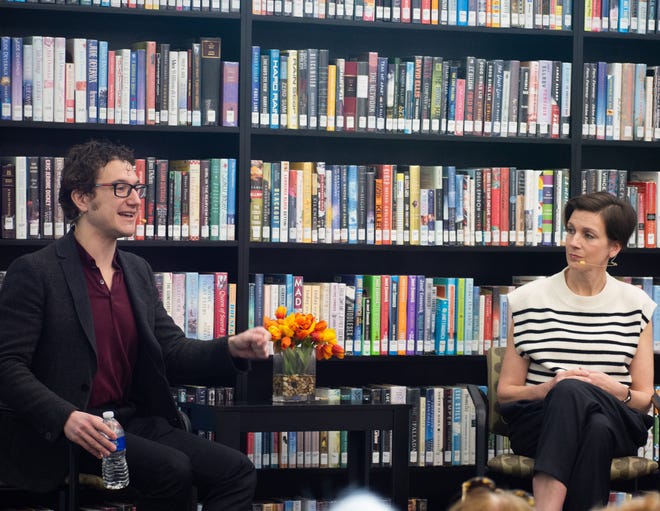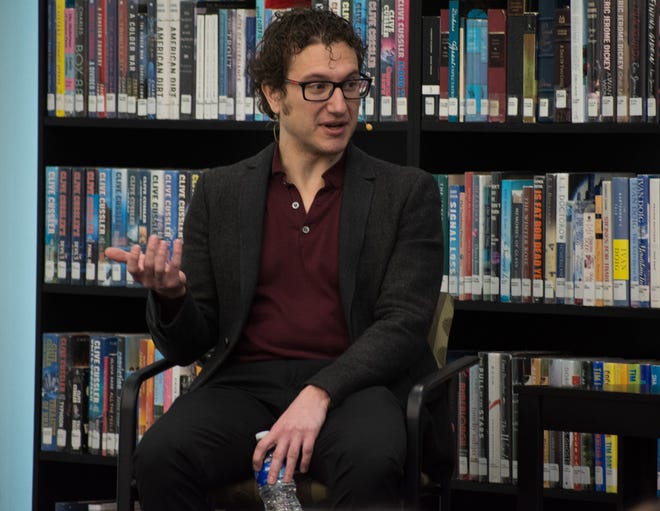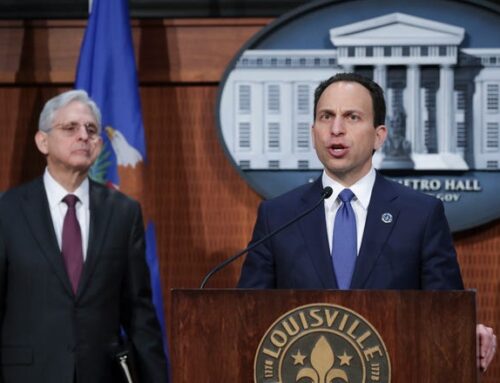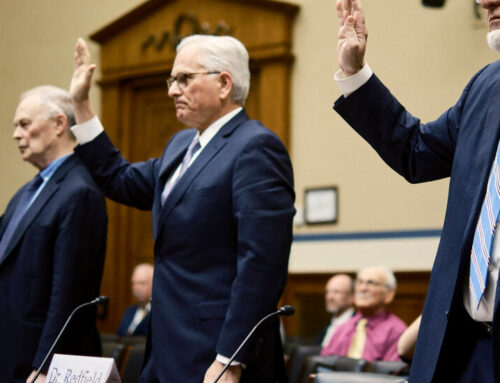This post was originally published on this site

When a talk is titled “Rock Star Conductor,” the bar’s already been set quite high. But the Friday morning conversation between music critic Corinna da Fonseca-Wollheim and Louisville Orchestra and Britt Festival Orchestra music director Teddy Abrams at the Rancho Mirage Writers Festival couldn’t have been titled more appropriately.
Abrams, a 35-year-old Bay Area native who began playing piano at age 4 and then clarinet in elementary school, studied conducting under San Francisco Symphony music director Michael Tilson Thomas at 12, attended Laney College and Foothill College during his teens and graduated with a Bachelor of Art from the San Francisco Conservatory of Music at 18.
Fonseca-Wollheim started the conversation asking about a musical he’s creating based on a 2017 composition inspired by the legendary boxer Muhammad Ali. Abrams said his interest in musical art is “exploring as much as possible” without adhering to the expectations of the labels such as conductor, composer and instrumentalist.
“I’ve always felt passionate about composing because it’s the ultimate exercise in exploring your own creativity. I wouldn’t trust a conductor that’s never composed anything,” Abrams said. “If you’ve never been through the process of trying to translate the sounds you hear onto a page, then I don’t think you’re getting the full experience when you go and engineer that process as a conductor.”
He described himself as a “byproduct of a very Western European hierarchy of art” and challenged the indoctrination in music education presenting composers such as Bach, Beethoven and Mozart as top-tier. He labeled these famed composers as “standards” because that’s what most aspiring classical composers look to when starting out, however, he doesn’t think old-school figures like Bach should get in the way of modern composers’ creativity.

“It’s hard to nurture what your own voice might be,” Abrams said. “Other genres of art suffer from this too, but our brethren in the pop music world are less bound by this. There’s more of an expectation in that world that each generation gets to express something new or isn’t necessarily compared in opposition to what came before. It’s allowed to be a new way of creating music during each decade and moment.”
Abrams highlighted the vibrant history of the Louisville Orchestra going back to its founding in 1937 by composer Robert Whitney and former Louisville mayor Charles Farnsley to be the “most important commissioning orchestra in the world” and a $5 million donation by the Rockefeller Foundation led to 160 albums by “standard” composers and others discovered in South America and the U.S.
“It’s such a beautiful image of what American cities can do and be,” Abrams said. “One of the reasons I work in Louisville is because it can matter what you do to people there. We’ve tried to create the same inspiration for that plan back in the ’40s to be the center of new music, but do it in a way that makes sense for the 21st century.”
As Louisville suffered through the COVID-19 pandemic, Breonna Taylor, a 26-year-old Black woman, was killed by police when they raided her home with a ‘no knock’ warrant in 2020. Abrams said the city was “torn apart in so many ways.”

“I have always suggested that artists are some of the most capable people in healing,” Abrams said. “They’re the best people to hold up mirrors and say ‘Here’s a reflection of who we are” and ‘But here is a dream of what we could be.’ If you have a city without artists like that, it’s soulless. I thought it was an amazing opportunity to attract those people. Our city has been through the ringer, we’ve had our challenges, but if we’re to be better and find ways of connecting and caring about each other, we need to attract artists there because they start the process and inspire others to do it.”
But what impact do an orchestra’s donors have on the decisions on the creative direction and what music is included in an annual program? Abrams said putting a city’s name in an organization means providing a service to that community but added 95% of orchestras aren’t selecting music based on donors making specific requests.
“When I’m talking to a person that can give money to a medical or educational cost or give money to the arts, I am trying to express a vision where the orchestra matters in our community,” Abrams said.
Desert Sun reporter Brian Blueskye covers arts and entertainment. He can be reached at [email protected] or on Twitter at @bblueskye.


